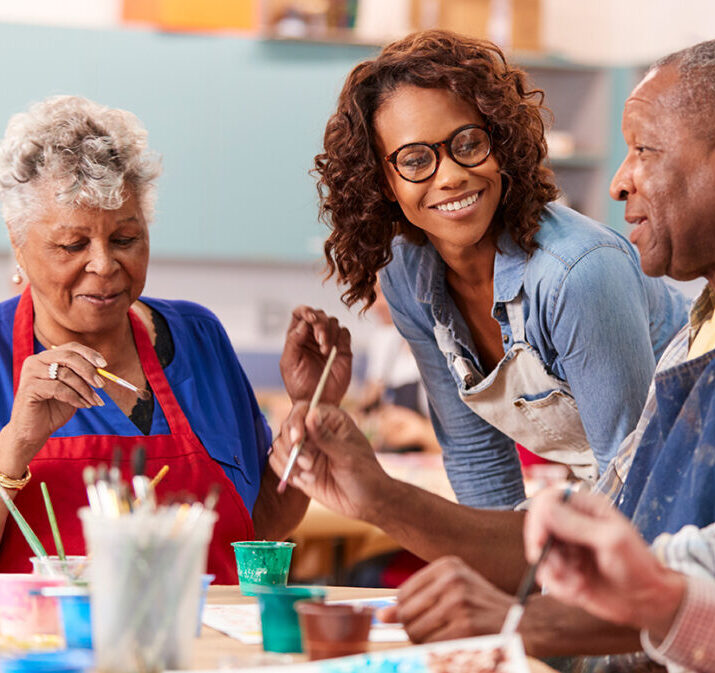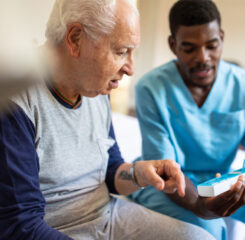Living with COVID: Week 9
This Week’s Highlights:
Volume Sixteen: Air Date 5.16.22. “Summer Travel and Pandemic Etiquette: 2022 Edition”
As we all start to gear up for summer travel and (hopefully) a little R&R, two recent articles from USA Today offer food for thought on etiquette in a time of – maybe? – endemicity.
The first article we’ll explore asks the question yet again – are we moving into endemicity? Afterall, we have more in our COVID toolkit that we did this time last year: more people are vaccinated and boosted, antivirals are more readily available, and there’s still robust screenings at both ends of your travel journey. Experts quoted from Johns Hopkins University explained that it’s still a tough call: new cases have more than doubled in the past month, but proportionately, the death rate is on the decline. Naturally, the fear is that a variant worse than omicron in terms of severity of illness and perhaps even more transmissible could pop up, and current vaccines and antivirals may not be able to stop it. “A full surge over the summer is going to be really dependent on a variant fully emerging. That tends to be the biggest trigger that will send us into a surge,” said Dr. Keri Althoff, professor of epidemiology at the Johns Hopkins”
On the flip side, “Julie Swann, a professor and public health researcher at North Carolina State University, expects the situation this summer to land in the middle: a small wave throughout the country with a slight uptick in hospitalizations and deaths.”
So where does that leave us, endemicity wise? Right in the middle – no longer in an acute phase of the pandemic, but not endemic, not yet.
Meanwhile – the other article asks – what is proper etiquette on a plane, when some passengers are masked and others aren’t? It’s fair to expect to find yourself in a diverse mix of people traveling from areas with various restrictions in place – or not – and of people with varying levels of COVID risk tolerance. Should you ask the person next to you to mask, if you are masking? And what about social distancing? The authors say, no – now that restrictions are relaxing, you don’t want to get into a conflict with your seatmate, and it’s now their individual choice whether to mask or not. On the other hand, you CAN give them more space, as possible, and even ask to be reseated. On the other hand, if YOU encounter someone who is masked, do the courteous thing that give that person the social distance they clearly seek.
If you are still determined to try to get your unmasked seatmate to wear a mask, however, here’s what the etiquette experts suggest:
· Start a friendly dialogue that is polite and discrete
· Respectfully tell your seatmate that their lack of a mask makes you uncomfortable, and ask them to mask up just for the flight.
· Carry extra masks with you so you can offer them one.
· And then remember that whether they choose to mask is not under your control.
Traveling this year certainly won’t be easy, but I’ll leave you with a quote from Diane Gottsman, an etiquette expert who founded The Protocol School of Texas. “It’s going to take some time, but we should do our best to hold our judgment and treat each other with kindness and understanding.”
Volume Seventeen: Air Date 5.18.22. “Learning from Never Having COVID”
Somewhere between 60-75% of the American population has experienced a COVID-19 infection. Researchers are now investigating what we can learn from people who have never had COVID, and, specifically, people who have had significant direct exposure to the virus, but who have not contracted it. The hope is to identify whether some people are more genetically immune to this virus.
Identifying such individuals has some challenges. It is difficult to ascertain whether antibodies have been generated by vaccination or by infection and we know that a certain percentage of infected people are asymptomatic so may not know whether they have been infected. However, additional types of tests may tease that out.
According to András Spaan, of the Rockefeller University “What we are looking for is potentially very rare genetic variants with a very big impact on the individual.” He said the international study has already enrolled 700 participants and is screening more than 5,000 people who have come forward as potentially immune to coronavirus infection.
The COVID-19 pandemic reminds us that infections are unique among diseases in their potential to rapidly cause massive morbidity and mortality worldwide. Those who survive waves of viral epidemics may be more genetically adapted. The introduction of SARS-CoV-2 to a naive population, on a global scale, has provided a demonstration of the clinical variability between individuals in the course of infection, ranging from asymptomatic infections to life-threatening disease.
Studying the genes and other biological traits of people who never catch the coronavirus could shed light on how the virus develops, or how it infects the human body and makes people sick, said Jennifer Nuzzo, of the Brown University School of Public Health. The findings could lead to better drugs and more targeted public health advice.
And, because masks, vaccines and social distancing can significantly reduce transmission, those factors may be as important as biological differences between people who have not been infected and those who have tested positive. People who always wear masks in indoor public spaces, stay up to date on vaccines and boosters, test frequently, and avoid high-risk gatherings or travel may have had fewer chances to catch the virus. Low levels of community spread in certain regions or the ability to work from home may also have protected some individuals better than others.
It will be interesting to see how this genetic research plays out. Certainly taking appropriate precautionary measures as cases rise will also be important.

Most Recommended
October 15, 2025
 Shutdown Week Three: Impact of Ongoing Closure on Affordable Housing
Shutdown Week Three: Impact of Ongoing Closure on Affordable Housing
February 24, 2026
Fiscal Year (FY) Funding 2026
October 07, 2025
Immigrant Workforce Matching Program Brings Workforce Relief
Recently Added
February 20, 2026
House Passes Housing for the 21st Century Act
February 20, 2026
HUD Proposes Immigration Eligibility Changes for "Mixed Status" Families
February 20, 2026
TPS Terminations: LeadingAge Explains Member Impact To Congress
February 18, 2026



